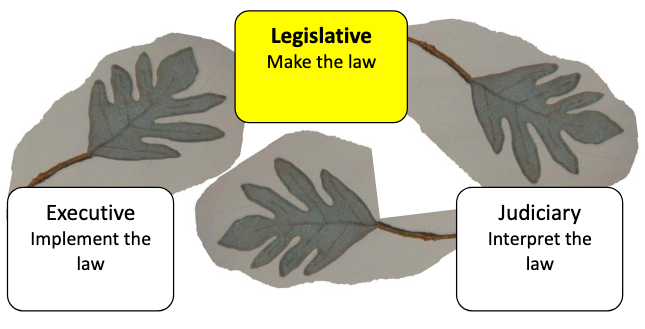Advise & Consent
Exercising its Power – Senate Confirmation Hearings
The Senate’s advise and consent role is rooted in the concept of “checks and balances” between the traditional three branches of government. When there’s a new Governor up on the 5th floor, he or she names their cabinet (the people chosen to lead each of the departments that make up the Executive branch). The governor may also make changes to such appointments throughout his or her term. As a result, in addition to the legislation that is debated and discussed at the Legislature, we will witness Senate confirmation hearings for the Governor’s appointments. (Certain judicial appointments made by the Chief Justice are also subject to Senate confirmation.)
The Hawaii State Constitution (Article V, Section 6) specifies that each executive department is headed by a single executive who “shall be nominated and, by and with the advice and consent of the senate, appointed by the governor.” In addition, numerous deputy directors will also undergo this Senate confirmation process.

Advise and Consent
The Senate Rules specify how the Governor’s nominations will be handled. Among other things, Senate Rule 37 states that:
- Appointments and nominations will be referred to the standing committee that has jurisdiction over the department.
- Public hearings will be held for all nominees and appointees prior to confirmation or consent by the Senate.
- The standing committee to which a nomination is referred must report to the Senate with a recommendation to advise and consent, confirm, or reject on or before the fifty-ninth day of the session.
The public is able to offer their testimony at these hearings. To find out if and when a nominee’s appointment is scheduled for a hearing, go to the Legislature’s website, click on the “Reports & Lists” button at center screen, and then select “Advise & Consent” in the column on the left. Next, either click on the link to view a report showing all the nominations or use the drop down menu to select the committee which has jurisdiction over the appointment you are interested in. Either way, once you have found the name or position you’re interested in, note the “GM” (Governor’s Message) number. Just like a bill or resolution number, you will use the GM number to view the measure’s status sheet, add it to your measure tracking or hearing notification list, and offer testimony. Note that in addition to the Department Directors and Deputies, numerous board and commission positions are also subject to approval by the Senate, as are numerous Judicial appointments. You can find those measures in the same manner as noted above. (Though Judicial appointments will use the notation “JC” for Judicial Communication.) Once a standing committee holds a hearing, it will vote and report to the full Senate its recommendation to confirm or reject the nominee. The nomination will then be scheduled for a vote by the entire Senate.